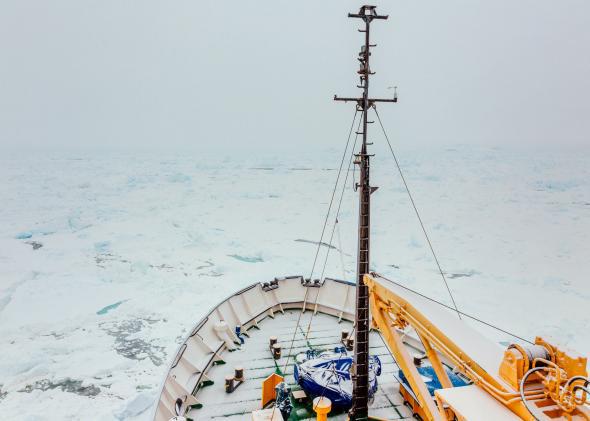For all the attention that the brewing competition for natural resources in the rapidly melting Arctic has gotten in recent years, things have been relatively quiet in Antarctica, despite similar ambiguity over territorial control and potential for major resource grabs: The continent’s oil reserves are estimated at up to 203 billion barrels—the third-largest in the world—and perhaps even more importantly in the coming century, its ice holds 90 percent of the world’s fresh water.
But there’s a sign this week that things may be heating up a bit on the South Pole with China’s unveiling of its fourth Antarctic research base—the UFO-shaped Taishan—with a fifth planned for next year. (Japan, Germany and, Italy already have five stations, and Britain and the U.S. have six.)
Vaughan Winterbottom of Australia’s Lowy Institute writes that:
Some have questioned China’s motivations for expanding its presence on the southern continent. ‘The country is rapidly building research stations — a method of assertion on a continent where sovereignty is disputed,’ wrote Nicola Davison on ChinaDialogue in November. In Stars and Stripes, Seth Robson commented last year that ‘China is boosting its presence in Antarctica with an eye on the icy continent’s vast untapped resources.’
For now, mining is prohibited under the Antarctic Treaty, but that will be up for review in 2048 and a number of countries may try to jockey for position before then.
The treaty also forbids new territorial claims by countries on the continent but passes no judgment on previous ones, which has occasionally led to some controversy. Britain and Argentina have overlapping claims and—in the midst of the dispute between the two countries over the Falkland Islands—Argentina objected last year to London’s decision to name a large swathe of Antarctic territory after Queen Elizabeth II.
Chile, Argentina, Britain, Norway, France, Australia, and New Zealand have current claims on Antarctic territory, but given the ambiguity involved, you can probably expect a lot more countries to be angling for a piece of the Antarctic pie over the next 30 years.
